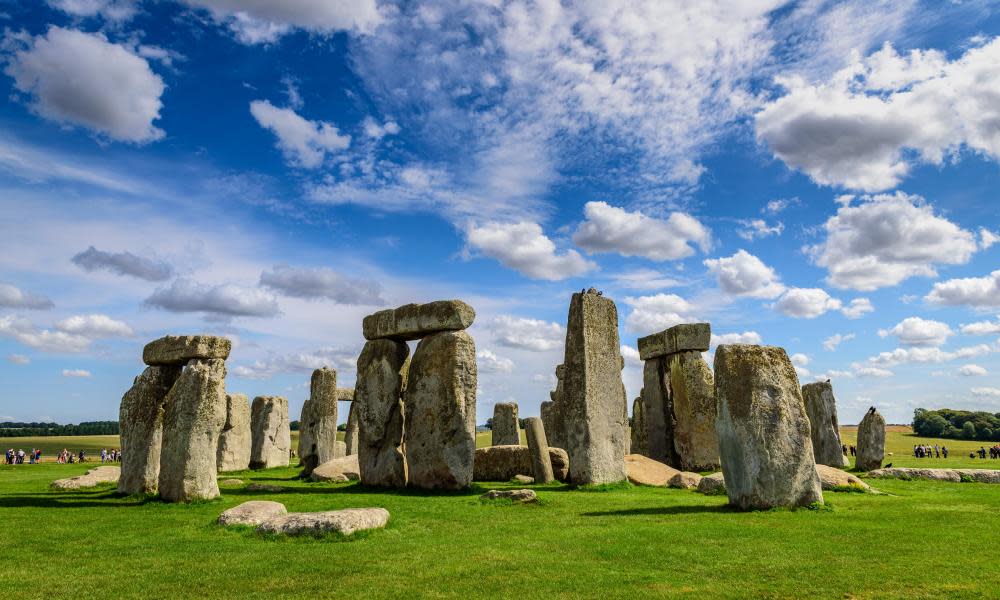High court victory for Stonehenge campaigners as tunnel is ruled unlawful

Campaigners including archaeologists, environmental groups and druids have won a high court battle to prevent a controversial road project that includes a tunnel near Stonehenge.
The £1.7bn scheme to overhaul eight miles of the A303 in Wiltshire next to the prehistoric monument was backed by the government last year, but campaigners launched a judicial review calling for the decision to be overturned.
On Friday Mr Justice Holgate ruled that Grant Shapps, the Conservative transport secretary, acted irrationally and unlawfully when he approved the project.
The court found that Shapps did not properly consider alternative schemes, as the law requires him to do, and that the decision-making process included no evidence of the impact on each individual asset at the world-famous historic site.
Campaigners from Save Stonehenge World Heritage Site (SSWHS), who challenged Shapps’s decision, said the court ruling “should be a wake-up call for the government”.
Related: From Stonehenge to the Lakes: Unesco concerns for UK landmarks
They said: “We could not be more pleased about the outcome of the legal challenge. The Stonehenge Alliance has campaigned from the start for a longer tunnel if a tunnel should be considered necessary.”
“Ideally, such a tunnel would begin and end outside the world heritage site. But now that we are facing a climate emergency, it is all the more important that this ruling should be a wake-up call for the government.
“It should look again at its roads programme and take action to reduce road traffic and eliminate any need to build new and wider roads that threaten the environment as well as our cultural heritage.”
Shapps backed the £1.7bn scheme to overhaul eight miles of the A303, including a two-mile tunnel, last November. He overruled the recommendation of planning inspectors, who warned it would cause “permanent, irreversible harm” to the Unesco world heritage site in Wiltshire.
On Friday, Holgate said there was a “material error of law” in the decision-making process because there was no evidence of the impact on each individual asset at the historic site. And he said Shapps’s failure to consider alternative schemes breached the world heritage convention and common law.
“In this case the relative merits of the alternative tunnel options compared to the western cutting and portals were an obviously material consideration which the (transport secretary) was required to assess.
“It was irrational not to do so. This was not merely a relevant consideration which the (transport secretary) could choose whether or not to take into account.
“I reach this conclusion for a number of reasons, the cumulative effect of which I judge to be overwhelming.”
A panel of expert inspectors recommended that development consent be withheld because the project would substantially and permanently harm the integrity and authenticity of the site, which includes the stone circle and the wider archaeology-rich landscape.
In a report to Shapps, the officials said permanent, irreversible harm, critical to the outstanding universal value of the site, or why it is internationally important, would occur, “affecting not only our own, but future generations”.
After the ruling was made, the site’s managers Historic England rued a “missed opportunity to remove the intrusive sight and sound of traffic past the iconic monument and to reunite the remarkable Stonehenge landscape, which has been severed in two by the busy A303 trunk road for decades”.
A Department for Transport spokesperson said the government was “carefully considering the judgment and deciding how to proceed”.

 Yahoo Movies
Yahoo Movies 
